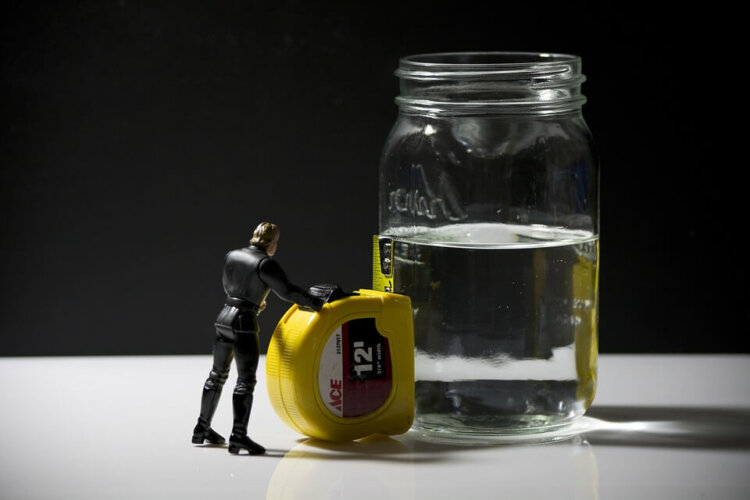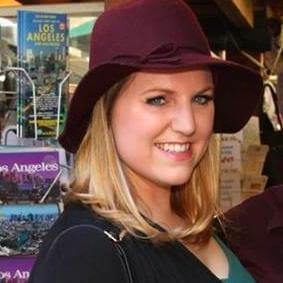
Converting to Both Judaism & Optimism
by Kylie Ora Lobell
The year that we were 16, my friend Katie and I spent time together every day, getting burritos and hanging out on rooftops near our high school. Then suddenly, we just stopped being friends. I was confused – why had our friendship dissolved? Months later, I got my answer from a mutual friend. “She stopped hanging out with you because she said you were a negative Nancy.”
After getting over the initial anger that someone would dump me as a friend just because I was negative, and not even confront me about it, I started to look inward. Was it true?
From then on, I paid attention to my everyday interactions. I found myself starting sentences with, “That sucks,” or “You know what I hate?” I would struggle to find a topic to talk about unless I was bashing something. When I got riled up, I could go on and on . When I liked something, I didn’t have anything to say other than, “That’s cool.”
It hurt that Katie dropped me from her life because I was negative. But I guess it was just too hard to be around me. I was bringing her down, and she didn’t want the negativity affecting her own fun. How had this happened to me? How had I become so negative?
I remembered that about five years previously, I had decided that I was an atheist and that there was definitely no God. I hadn’t seen any miracles, and thought praying was stupid. As a child, I had prayed to God that my parents wouldn’t get a divorce. It happened anyway. Nobody was out there listening to me. There was no plan for me, and no reason to be happy about the here and now. I thought that life was short. You paid taxes. And then you died. I was alone. I had to be a realist to survive this harsh world.
That meant seeing things for what they were. That the movie “Mean Girls” was not funny to me, but instead a sad representation of the bullies and clique culture so prevalent in schools; that going down a tall waterslide wasn’t fun – it was dangerous.
If something went wrong, then another thing would and so would another. It would snowball. If my day started out with me spilling my coffee, for instance, the rest of the day would be “just one of those days.” Pretty much every single day was turning into “one of those days.” I looked at myself and thought, “Wow, I must deserve this. I guess I did something wrong.”
By always seeing the negative in any situation, I was saving myself from disappointment: if I believed that nothing would work out anyway, when it did, I would be pleasantly surprised. If it didn’t, then it was good that I didn’t get my hopes up and my heart broken.
My logic was making me feel depressed. I was always the victim of life’s circumstances and also the reason for all my pain.
When I started dating my Jewish boyfriend after graduating from college, I got my faith in God back, and began to shift to being a more positive person.
From the moment I stepped into the local Chabad synagogue and saw the rabbi and congregants singing and dancing and having a good time, I saw that Jewish culture was about joy. It taught that life is a gift that we must cherish, and to be depressed or negative is to be wasting it.
From the Jews I met, I learned that God wants us to be happy, and the way to be happy is to have a close relationship with Him. I also discovered that while we have free will, there is always a plan, and it’s for the good. I started to believe in the Hebrew saying, “gam zu l’tova,” which means, “This, too, is for the good.”
I experienced this principle up close the first few months of living in New York, before I began my conversion process. My landlord claimed that my boyfriend and I owed her thousands of dollars. We had to quickly raise the funds or we’d be kicked out of our apartment. We had no money to secure a new place, and our home was rent-controlled and in a nice area, so it was scary.
At the time, I cried… a lot. I wanted to run away and go back home to Baltimore. I thought, “Of course it could never be this good. I would never just be given a nice apartment without attachments. I knew this would come crashing down.”
But my boyfriend was a go-getter. He raised some money from his friends, paid our landlord, and agreed that we’d pay more each month to get rid of our debt. We found out later that a worker in the landlord’s office had been pocketing all the tenants’ rent instead of paying it to her boss. My boyfriend had paid in cash – he had the receipts, but didn’t know where they were.
Several months later, while cleaning out my boyfriend’s desk, I found a rent receipt. And another. And then another. Soon enough, we had tons of evidence that we had in fact paid the rent every single month.
When the landlord told us that because we found these receipts, she owed us money, I laughed and laughed. I thought, immediately, gam zu l’tova. We were planning on moving to California, and this money was going to help make it happen. God wasn’t punishing us two years prior; I chose to see it as God actually setting us up for success for the next step in our life.
I don’t think that in every situation you can just shrug off what’s happening to you and say, “Well, it’s for the best.” This is especially true when it comes to the sudden death of a loved one or when a close friend reveals she’s sick. But I do believe in the Jewish concept of Olam Ha-Ba [the world to come], that there’s an afterlife; I hope that friends and family members who have died are at one with God. Or, if they go through horrible circumstances, that it’ll be easier for them in the next life. If, God forbid, I go through tough situations, I hope I’ll be able to feel comforted by Jewish wisdom and be able to say that somewhere out there, what’s happening is ultimately for the good, even if i don’t understand it fully in the moment.
As for my everyday life, I don’t think negatively anymore. If I spill my coffee on myself, I think, “Gah!” and make another cup of coffee. If I don’t get a job I applied for, I realize that that job might not have been a good fit anyway. If I do get the job but I end up quitting it, I realize that it just wasn’t a match for me, and I find something else.
On the Jewish holiday of Shavuot – which starts Saturday night and runs through Monday night – Jews study Torah, and in synagogue, read the story of Ruth, which starts out very tragic. A woman named Naomi was once wealthy, until her husband and two sons died. She decided to return to her hometown of Bethlehem, and Ruth – who had been born a Moabite and was not Jewish – said she would accompany her mother-in-law. They had no prospects and no protection. And yet, Ruth declared to her mother-in-law, “where you go, I will go…your people will be my people and your God will be my God.” Because of this declaration, seen as a conversion of sorts, Shavuot is often known as a holiday that is special to converts. Eventually, Ruth remarried and had a child, Obed. Obed’s grandson was David, who became one of Israel’s greatest kings.
The story of Ruth shows that there is always a possibility for positivity. Naomi was essentially at rock bottom, but Ruth chose the path of hope and faith and got them to a much better place, and their legacy was that one of Israel’s greatest kings was from their lineage.
Life is hard. But there’s no reason to dwell on that fact. Instead, I have to look at how I can spin any negative situation in my mind, and trust that with a little faith, it’ll all work out in the end.
 Kylie Ora Lobell is a freelance writer based in Los Angeles who has been published in The Jewish Journal, Tablet Magazine, xoJane, and Time Out NY/LA. Her most recent piece in the Jewish Journal was about her conversion journey and converting for love. She previously wrote for GrokNation about body image. To learn more about Kylie or read more of her writing, visit: www.kylieoralobell.net.
Kylie Ora Lobell is a freelance writer based in Los Angeles who has been published in The Jewish Journal, Tablet Magazine, xoJane, and Time Out NY/LA. Her most recent piece in the Jewish Journal was about her conversion journey and converting for love. She previously wrote for GrokNation about body image. To learn more about Kylie or read more of her writing, visit: www.kylieoralobell.net.
Reminder: GrokNation will be on digital detox for Shabbat and the duration of the holiday of Shavuot – we’ll see you back with fresh content on Tuesday.


Grok Nation Comment Policy
We welcome thoughtful, grokky comments—keep your negativity and spam to yourself. Please read our Comment Policy before commenting.